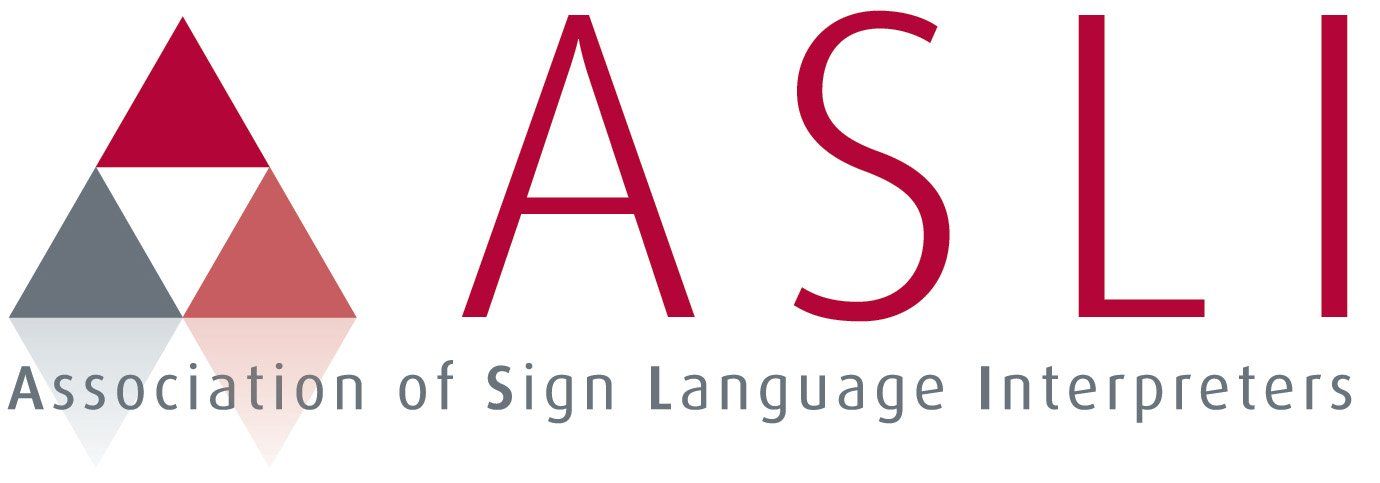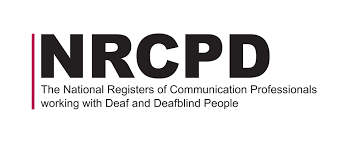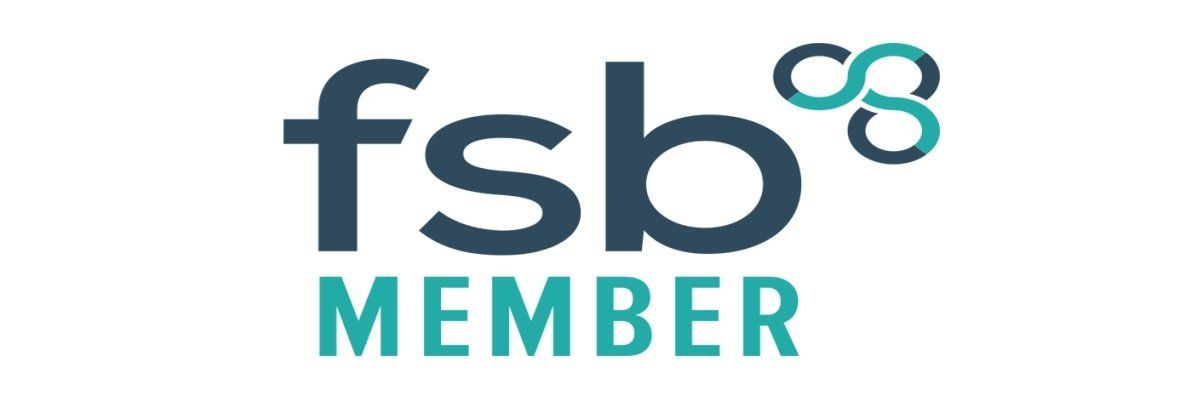Qualifications
University of Central Lancashire (UCLAN/SLI)
October 2011 - Level 6 NVQ Certificate in British Sign Language
Sussex University/Signature
November 2010 - Level 3 NVQ in British Sign Language
Sussex University/CACDP
August 1992 - CACDP Level 2
University of Durham
June 1991 - CACDP Level 1
University of Durham
Workshops
March - June 2023 - Working with difficult people -
A program for sign language interpreters & translators
Training by Darren Townsend-Handscomb
An opportunity to develop awareness and understanding of why we find certain people difficult to work with and to identify a range of skills and strategies to help when interacting with difficult people. Sessions were facilitated by the trainer and followed by discussion groups throughout the month following.
· What is ‘difficult’, and why is it ‘difficult’.
· What are our triggers?
· What influences our perceptions and experiences of, and our ability to, work with ‘difficult’ people (customers, colleagues, bookers, as relevant)?
· What you can do to improve your experience of, and ability to, work with ‘difficult’ people, before, during and after interactions.
This course includes sessions discussing the importance of :
· Mindfulness, anchoring and self-talk, and
· Assertiveness skills.
The particular challenges of working remotely were explored along with sessions which brought attention to the need for self-care, and what to do when you can’t resolve the difficulties.
February 2023 - Expletives in the Interpreting Context
Training by Dr Octavian Robinson
Is it ok to swear? The effect of profanity in interpreted dialogue. The dangers of using or omitting profanity inappropriately.
This workshop looked at the various contexts that profanity is used. Profanity can be anything from an empty space-filler to markers of deep emotion. In one area a work may be considered impolite, in another entirely acceptable. In other contexts, profanity can build rapport.
How do I use (or not) profanity. Do my personal views on the use of language and profanity colour my interpretation? What dangers should I avoid?
Creating a Collaboration in Communication: Exploring Crip Linguistics in Interpreting
Training by Dr. Naomi Shenemen
“Crip linguistics means to critique language… through the lens of disability, include disabled perspectives, elevate disabled scholars, center disabled voices in conversations about disabled languaging, dismantle the use of disorder and deficit rhetorics, and finally, welcome disabled languaging as a celebration of the infinite potential of the bodymind.”
This training workshop focussed the interpreter’s mind on linguistic collaboration – never viewing another person’s style of language use as being at a certain ‘level’, but taking responsibility for enabling meaningful communication in a variety of ways according to the language style of the people we work with.
December 2022 - Trauma-Sensitive Boundaries in Interpreting
Training by Dr Hattie Bowden-Howl, Clinical Psychologist
'Trauma-Sensitive Boundaries in interpreting': Considers the role of trauma in your work as BSL interpreters and how this may affect boundaries. Discussions concerning other influences such as our role in the systems that surround us (utilising the ecological systems model), how we feel about our roles, being an ally to those who experience discrimination and marginalisation and how this further contributes to the felt trauma of not being heard (literally and metaphorically) and validated.
November 2022 - Sexual Violence workshop
Training by Claire Chilton - Qualified IDVA
An opportunity to discuss new jargon and terminology associated with sexual violence and gain a better understanding of how interpreters can work more professionally and proficiently in this domain.
The course covered:
- How interpreters build trust in their clients in highly emotive environments?
- Extralinguistic knowledge should we arm ourselves with
- Interpreting for a disclosure
- Interpreting in situations of sexual violence
- Vicarious trauma/Self-care - what interpreters need to be aware of
- Case studies and professional discussions
October 2022 - Interpreting in police settings – the police perspective
Training by DS Emma Gilbert
Emma Gilbert is a Detective Sergeant, currently serving with Leicestershire Police, with extensive experience of response, community and criminal investigation policing.
Emma manages the UK’s innovative Police Link Officers for Deaf people (PLOD) scheme and manages a team of police officers and police staff trained at various levels of BSL and Deaf Awareness and which aims to make police services accessible to all D/deaf people.
Topics discussed:
- What types of bookings/interviews might interpreters be needed for?
- What would you do if you felt you needed to challenge a police officer on their practice?
- How national (UK) and strategic aims of the PLOD initiative and police interpreting may affect interpreters.
- A discussion of the technological, national and global developments taking place in this domain.
- What the PLOD does and how it differs from the role of an interpreter
- An analysis of the limitations of interpreting and translating police procedures including the introduction of Video Relay Services (VRS) and Video Remote Interpreting (VRI)
- Identification of national and global issues that could impact on interpreter services as a whole
June 2021 - The Demand Control Schema
Training by Dr Robyn K. Dean
Why didn’t I handle that situation better? Am I an incompetent interpreter? What else could I have done?’
The DC-S is a framework designed to help us analyse each situation in which we carry out our interpreting work, to identify and more effectively meet the demands of the assignment.
Reflecting on the ‘demands’ of an assignment and our own ‘control’ options is essential not only for our professional and personal growth, but also in managing occupational stress, preventing burnout and ensuring career longevity.
July 2020 - Crown Commercial Service Seminar
The Crown Commercial Service Market Engagement Session
Discussion centered around:
- The structure and services which they intend to deliver under the new Language Service Framework. Levels of community engagement and delivery prior to the allocation of framework agreements were discussed.
- Challenges faced both by the CCS in meeting their targets and also the communities that use their services (such as interpreting within the NHS etc.)
Diversity Signs - VRS/VRI Training
Training by Diane Thomas
Training covered the basic guidelines for undertaking VRS/VRI assignments:
- Which types of assignments are well suited to this medium of interpreting and which are not
- How to deal with difficult calls
- How to take control if the communication is not successful
- Self-care
- How to set up your home-studio
- Fee structures that apply to this type of work
- Equipment requirements
- Identifying our transferable skills
An opportunity to reflect on what we do, how we do it and the way we are perceived by others when we vocalise their utterances.
A 2 day workshop encouraging us to experiment, rehearse and challenge ourselves on both a personal and professional level.
Through a series of exercises and practise techniques we developed a greater appreciation of our competences and learned strategies and practical tips to use when voicing over - even when things appear to 'go wrong'.
Workshop led by Jeni Draper who encouraged us to learn 'how it feels' and David Wolfenden who asked us to focus on 'how it comes across' in the course of our professional work.
An opportunity to gain confidence to ensure interpreters are in touch with their feelings.
June 2015 - Interpreting in Mental Health Settings
Two-day workshop delivered by Herbert Kleine & Esther Rose
September 2014 - Family Proceedings & Family Courts Vocabulary Workshop
By Gloria Ogborn - Fellow of ASLI, Trainer (Legal Interpreting CPD), UK Registered Expert Witness & Consultant
August 2014 - A Brief with a Brief - Family and Criminal Court Training
By Byron Campell (supported by Victoria Edmonds & Stefan Kolodynsk - Barristers from St. Phillip’s Chambers, Birmingham)
February 2014 - Interpreting in Legal Settings (part 2)
By Jeff Bratton-Wilson (RAD Deaf Law Centre Manager) & Rob Wilks (Director of
Legal Services at the Royal Association for Deaf People)
15 June 2013 - Criminal Vocabulary Workshop
By Gloria Ogborn - Fellow of ASLI, Trainer (Legal Interpreting CPD), UK Registered Expert Witness & Consultant
February 2013 - Induction into Court Interpreting
By Gloria Ogborn - Fellow of ASLI, Trainer (Legal Interpreting CPD), UK Registered Expert Witness & Consultant
September 2011 - Safeguarding in the Learning & Skills Sector
Learning and Skills Improvement Service (LSIS)
Lectures & Additional Learning
November 2022 - Law and Language Seminar: Deaf Legal Theory and Sign Language Law
Lectures by Dr Rob Wilks, Dr Gearoidin McEvory & Dr John Bosco Conama hosted by Birmingham University
These lectures provided an excellent overview of issues at play within various Deaf communities and the legal system. A critical eye on Deaf people's access to the legal system and how people from within the establishment are working for progress and change.
DS Emma Gilbert, Manager of the UKs Police Liaison Officers for the Deaf (PLOD) Provided a police perspective on interpreting in this domain.
October 2016 - Training: Performance Interpreting, a Foot in Both Worlds
Sarah Gatford, an experienced Performance Interpreter discusses how to convey a performance written for a hearing audience, to Deaf theatregoers. Sarah took us through the theatre interpreting process from the moment you receive the booking enquiry, right the way through to post-performance reflection.
She shed light on theatre culture and the people skills you'll need if you decide to work in this domain. The training also gave an opportunity to learn skills which can be transferred to the other domains.
January 2016 - ASLI Guidelines for VRS Interpreting
Lecture based on the recently published Video Interpreting Best Practices Guidelines document - Helen Ryan, RSLI
June 2015 - An Introduction to Interpreter's Role-Space: Re-thinking our place in interactions.
Lecture by Robert Lee
April 2013 - Working in “Access to Work” Environments - Thesis Presentation
By Jules Dickenson - An experienced BSL/ English interpreter... undertaking a variety of assignments including 'Office/ Access to Work' interpreting/ASLI Board member.

Volunteering Experience
A year-long volunteer assignment in Kenya, working in Nairobi, Mombasa and Malindi. Worked with a local translation team who were translating religious education material from English to KSL.
Worked with a Deaf-led community outreach project involving Deaf people across the Coast Province (Pwani).
While living in Kenya I was invited to visit and observe smaller projects in Lebanon and Madagascar.
October 2016 - February 2017 - Volunteering in Nairobi and Mombasa, Kenya
Headed up a team filming an educational video project using Deaf presenters.
January - April 2016 - Volunteering in Mombasa, Kenya
Learning Kenya Sign Language and assisted local trainers to deliver an interpreter training course. Helped to organise the first of several nationwide conferences to be held in Kenyan Sign Language for a religious charitable organisation.




